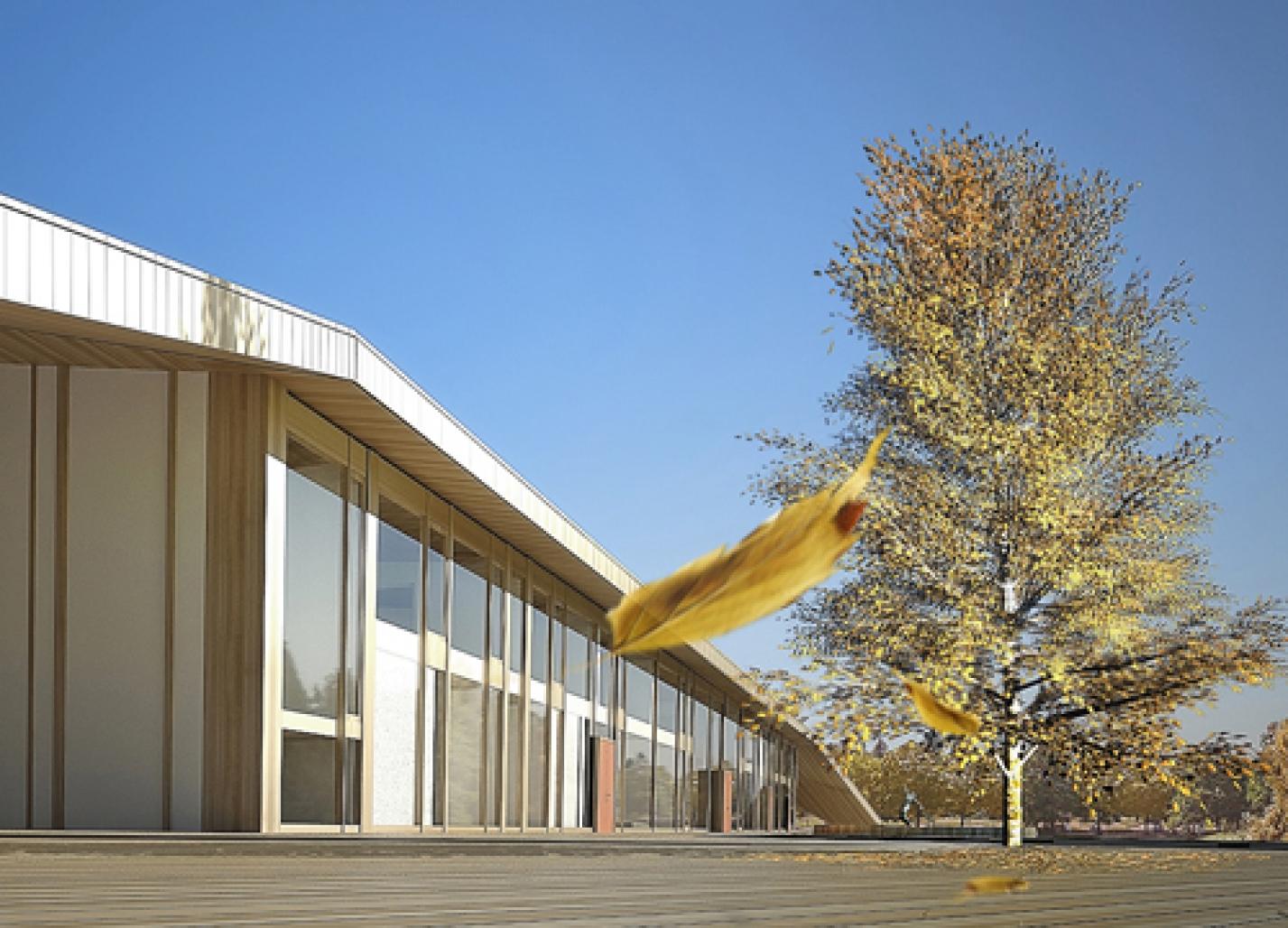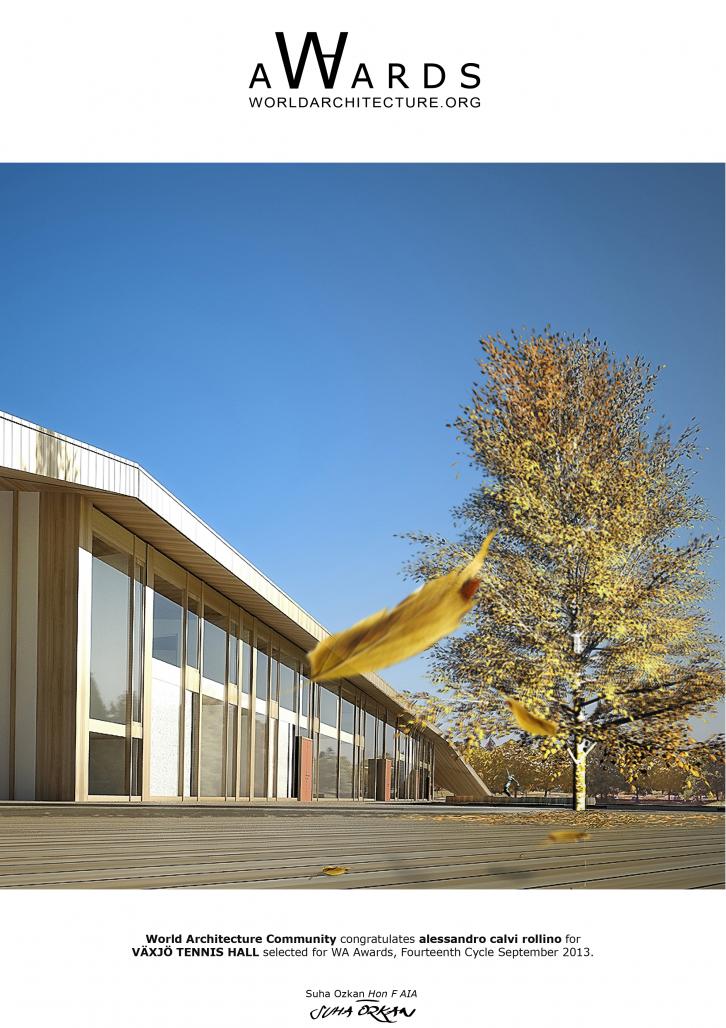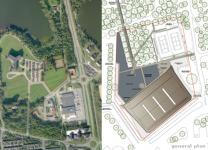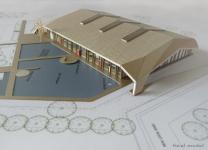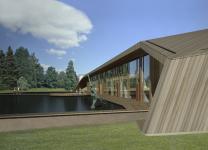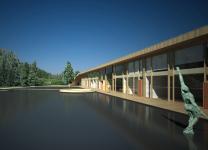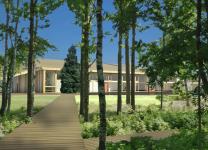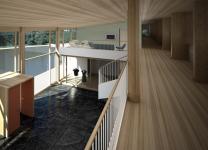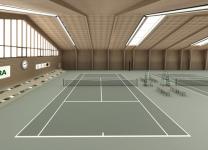The project promotes the aesthetic values of wood-based architecture by means of a design approach sensitive to the identity of place and responsive to environmental issues. The disposition of the spaces, their indoor connections and the connections with the immediate surroundings allow the structure to be fully functional both for primary tennis related activities and for other happenings such as fairs or music concerts. The solution of the architectural competition program was a constant reference to transcend ordinary functional spaces into unique and emotional atmospheres. The nearby Växjö Lake and Forest are important design inputs since they are vessels of emotional and perceptual values translated into the project. The artificial lake that we propose acts like a detention pond: it not only solves the problem of the storm water management for the entire area, but also provides a way to propose familiar perceptive dynamics of mirroring and reflecting the surrounding landscape. The main pedestrian and bicycle wood-decked pathways have a north-south orientation so that the Forest has the function of a natural filter before the new spaces become revealed in front of people’s eyes. The shared values of “Växjö, the Greenest City in Europe” can be found not only in the building design’s sensitive response to its natural landscape, or in the wood-oriented construction or, again, in the storm water management. We also paid attention to other sustainable choices like the retention and re-use of storm water, the presence of integrated photovoltaic and solar modules on the roof and the use of low energy consumption heating equipment. The building is designed to be heated up by a geothermal pump with a low-temperature under floor system which avoids the use of intrusive service ducts. The tennis courts use a natural ventilation system via windows located opposite of each other and skylights thus allowing air exchanges. Windows and skylights convey a large amount of natural light into the tennis court volume via translucent polycarbonate panels which provide excellent visual comfort for players – no shadows on the courts- thus minimizing the use of artificial light and resulting in operational cost savings.
VIDEO CLIP OF THE PROJECT http://www.youtube.com/watch?v=dkrtvXI50AI
2009
Alessandro Rollino, Micaela Tolio
VÄXJÖ TENNIS HALL by alessandro calvi rollino in Sweden won the WA Award Cycle 14. Please find below the WA Award poster for this project.
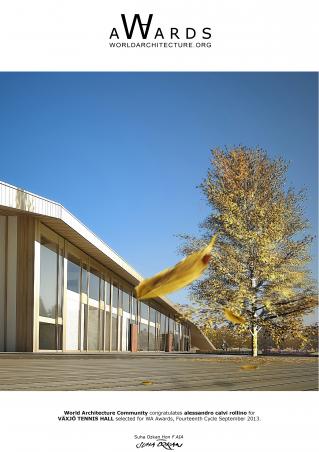
Downloaded 136 times.
